Mark Hurd's Replacement: Is Apple's Tim Cook On The Shortlist For HP's Next CEO?
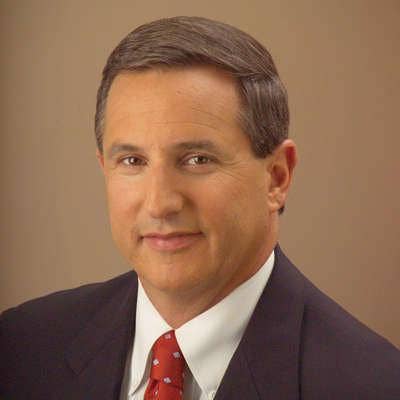
Hurd's Out, But Who's In?
It was the shot heard around the tech world earlier this month when HP CEO Mark Hurd resigned amid a sexual harassment scandal. While Hurd walked away with a $12 million take after he ultimately admitted to breaking HP's code of conduct by fudging expense reports, the 5-year chief executive left in his wake a lot of questions; chief among them: Who can replace him?
CRN has taken a look at the possible pool of candidates from outside HP and will make a case for 10 external candidates that HP should be looking at to replace its fallen leader. We're not saying that they'll take the gig, or that HP will even consider them, but these are 10 top contenders who should get a chance at the top spot at HP.
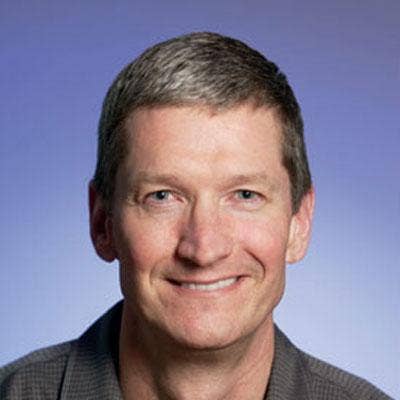
Tim Cook (Apple)
Forget Steve Jobs and Apple. As Apple's COO, Timothy D. (Tim) Cook plays second fiddle to Jobs, but for all intents and purposes he runs the show. He handles the earnings calls and runs the behind-the-scenes action while Jobs hogs the spotlight at each iPhone release. Currently, Cook heads up all of Apple's global sales and operations, including end-to-end supply chain management, sales activities and service and support in all markets and countries. He also has the channel chops to make an impact, as Cook heads up Apple's Macintosh division and plays a major role in the continued development of its reseller and supplier relationships. Without Cook, Apple wouldn't be the powerhouse it is today.
And Cook's resume is jam-packed with stints at Compaq; Intelligent Electronics, where, as COO, he headed up the reseller division; and IBM. He also has ties to Nike and the NFL as a board member. Cook could bring a well-needed innovation injection to HP.
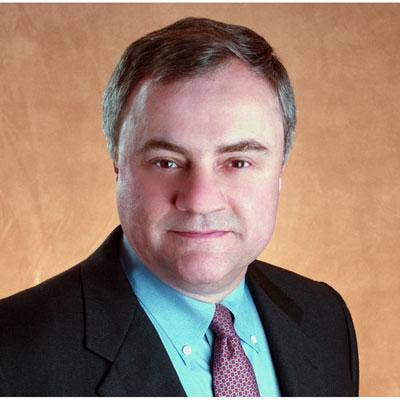
Steve Mills (IBM)
Steve Mills recently got the nod from Big Blue with a promotion as part of a recent reorganization within the IBM executive ranks. Long-time IBM vet Mills is now senior vice president and group executive for Systems and Software. Before that, he led IBM's software group. The re-org sparked speculation whether Mills or a trio of other promoted executives were being groomed as replacements to CEO Sam Palmisano.
Mills has had great successes with IBMs global software business, which he could leverage in Palo Alto. He's got the business savvy and the technology knowledge to jump into the big shoes Hurd leaves empty.
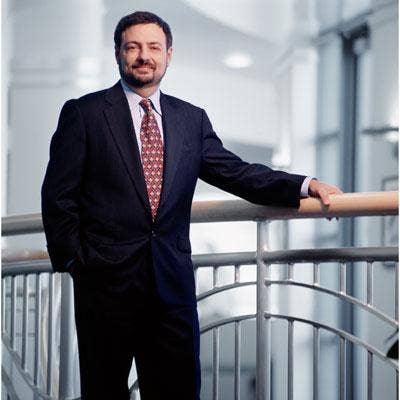
Charlie Giancarlo (Silver Lake)
Charlie Giancarlo played second banana for ages. Long thought to be the next in line to replace Cisco CEO John Chambers, Giancarlo left the networking giant in 2007 when all signs pointed to Chambers sticking around. Giancarlo also took a temporary top spot at Avaya when then CEO Lou D'Ambrosio stepped down due to health reasons. Giancarlo is now a managing director and co-head of value creation at Silver Lake, a private investment firm that deals mostly with high tech.
But most notable is Giancarlo's nearly 15 years at Cisco, where he ended his tenure as a executive vice president and chief development officer at Cisco and as president of Cisco-Linksys, where he oversaw Cisco's overall product development and management activities. The chief development officer spot charged Giancarlo with the activities of roughly half of Cisco's work force and Giancarlo was responsible for Cisco tackling new markets and technologies. Being able to tap Giancarlo's vast reservoir of Cisco knowledge would be a boon for camp HP as the two powerhouses continue to tussle as long-standing rivals. A former Cisco boss sliding into HP's top spot would surely give HP an edge in the continual grudge match.
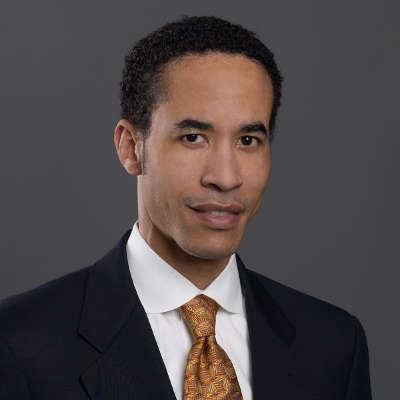
Charles Phillips (Oracle)
Charles Phillips has been president of Oracle since 2003. Why leave for the HP post? His opportunities for advancement are rather limited given that CEO Larry Ellison remains very much in charge and shows little evidence of retiring any time soon. Plus, Phillips shares the president's office with Safra Katz, so he doesn't even have sole possession of the No. 2 spot.
Phillips came to Oracle from Wall Street where he was an executive with global investment bank Morgan Stanley. That makes him influential with the investment community -- a plus in these days of Wall Street turmoil.
But Phillips has an Achilles heel: Earlier this year he was caught up in an embarrassing situation when a woman with whom he had an extra-marital affair posted billboards in three cities publicizing the relationship. Given that the brouhaha that forced Hurd to resign involved a sexual harassment charge (which HP's board concluded was unfounded), Phillip's "billboard moment" might be a little too much baggage.
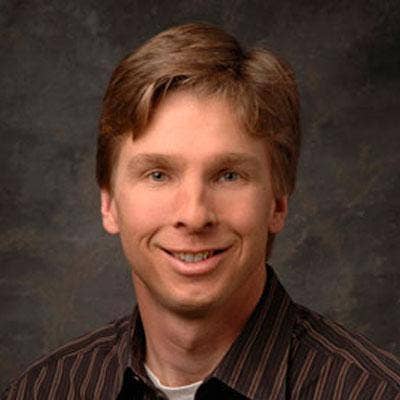
Ned Hooper (Cisco)
Cisco's Ned Hooper is the new heir apparent to Cisco CEO John Chambers and Hooper has already been groomed to take the top spot when, or if, Chambers ever steps down. His Cisco knowledge should be enough to wet HP's appetite. Hooper currently wears two large hats at the networking giant as senior vice president of corporate development and senior vice president of the consumer group. The corporate development role makes Hooper responsible for Cisco's global growth strategy through business development activities like acquisitions, equity investment and the incubation of innovative technologies. In the consumer group, Hooper manages Cisco's growing consumer organizations' strategy as it attacks the home network. Hooper was instrumental in Cisco's $590 million acquisition of Flip camera maker Pure Digital.
Hooper brings the business and tech know-how, the consumer knowledge and the innovation acumen to take HP in new directions while honing its current strengths. And it doesn't hurt that Hooper would be leaving Cisco as second banana and stepping into the starring role at HP.
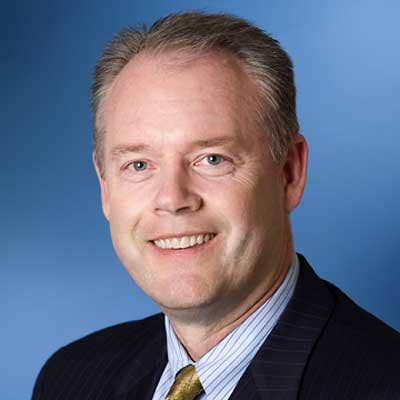
Kevin Johnson (Juniper)
Juniper Networks CEO Kevin Johnson may sound like a dark horse candidate to take over for Mark Hurd at HP, but Johnson's career is a stellar example of what HP needs in its top dog. Johnson took over Juniper's CEO spot in 2008 and in just two years at the help has built Juniper into a powerhouse contender in the networking and data center game, a pair of markets into which HP had deeply dug its talons. Johnson has also shown he knows how to compete with the likes of Cisco by building Juniper up as the alternative of choice.
And then there's Johnson's time at Microsoft. Before joining Juniper, Johnson served as president of Microsoft's Platform & Services Division, a role in which he was responsible for product development, marketing and strategy for Microsoft's Windows and Online Services business. Johnson was unfettered when Microsoft's attempted acquisition of Yahoo went bust in 2008, a deal Johnson had a strong hand in orchestrating.
Johnson would bring to HP the marketing chops along with product development and strategy successes and a knack for acquisitions. And his experience in the network and in the data center, coupled with the online and services know-how, make him a shoe-in as HP heralds the new era of networking and looks to navigate the cloud computing landscape.
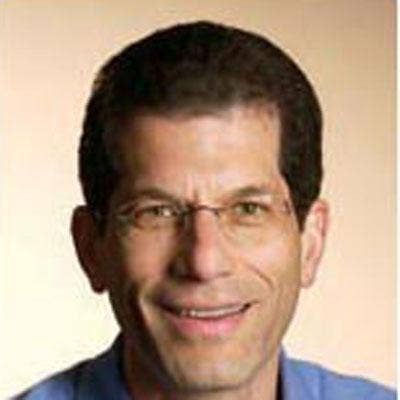
Jon Rubinstein (Palm)
HP may not have to look to far to bring aboard Mark Hurd's successor, as the acquisition of Palm earlier this year may have brought him into the HP family already. Jon Rubinstein knows innovation. While he couldn't save Palm, Rubinstein is the top pick among Silicon Valley pundits to fill Hurd's shoes. By the time Rubinstein joined Palm as CEO, that ship had sunk, but he did his part to try and bail Palm out with the launch of a new operating system, webOS, and a string of notable smartphone releases. He reinvigorated Palm's smartphone business, the job he was charged to do. Before joining Palm, Rubinstein was an innovation machine, running the iPod group at Apple. If Rubinstein can reinvent how the world listens to music, imagine what he could bring to HP's corner office. As HP looks to make hay with new products and attempts to break into the ever-growing tablet market, a portable device guru like Rubinstein may be just what the doctor ordered.
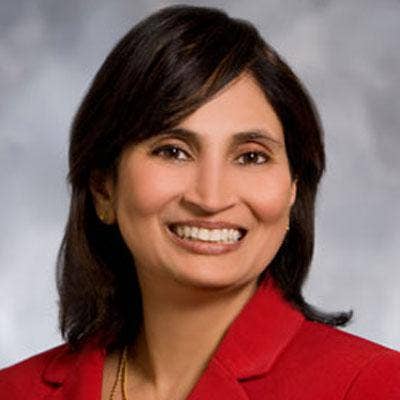
Padmasree Warrior (Cisco)
As Cisco's CTO, Padmasree Warrior has become one of the most recognizable faces of Cisco. She's the driving force behind Cisco's technological innovation and strategy and works directly with its senior executive team and board of directors to align those efforts with Cisco's overall corporate goals. Dubbed an "evangelist for what's possible," Warrior breathed new life into Cisco when she joined in 2007 after serving roughly four years as CTO for Motorola, where Warrior held various positions over her 23-year tenure.
Warrior is a bastion for the next big thing and has instilled a culture within Cisco that embraces the new and the unknown. These are two key areas where HP could benefit as it looks to pump new innovation in the wake of Hurd's departure. Warrior is also head and shoulders above many other executives when it comes to Web 2.0 and social media, boasting nearly 1.4 million followers on Twitter. HP could use an executive that's not only in-tune, but one who is also tuned in.
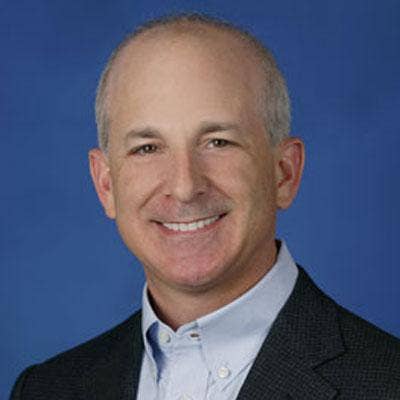
Steven Sinofsky (Microsoft)
As president of Microsoft's Windows Division, Steven Sinofsky is credited with being the brain behind Windows 7. And he's Steve Ballmer's go-to guy and believed to be the next in line to run the house in Redmond. He's in charge of development, business strategy and marketing for Windows, Windows Live and Internet Explorer, three brands that Microsoft considers major plays. There have also been rumors that Sinofsky could be tapped to oversee Microsoft's mobility play as well. Sinofsky made it through the Microsoft ranks since joining as a software design engineer in 1989. Sinofsky's unique blend of technology prowess and understanding around the role of user-centric Internet services, or cloud computing, if you will, could be the one-two punch HP is looking for to rally the troops following Hurd's departure. And it doesn't appear Ballmer is going anywhere, so HP could give Sinofsky a solid shot at the top slot.
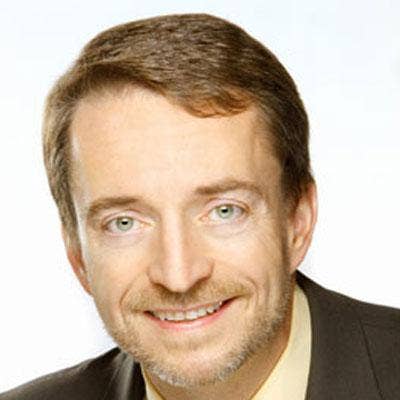
Pat Gelsinger (EMC)
Though he just joined the EMC team back in September 2009, EMC COO Pat Gelsinger has something major that HP wants: The intel on Intel. Before signing on at EMC as president and COO, Gelsinger was a long-time Intel executive. Gelsinger oversees EMC's Information Infrastructure portfolio, including its Information Storage, RSA Information Security, Information Intelligence Group and Ionix IT management divisions. At Intel, he was senior vice president and co-general manager of the company's Digital Enterprise Group, Intel's largest business group that accounts for half of the company's annual revenue. Gelsinger's group was responsible for Intel's PC, server, embedded, communications, virtualization and storage products. Gelsinger's wide breadth of product knowledge and understanding of different markets, plus his penchant for patents, of which he holds six in the areas of VLSI design, computer architecture and communications, make it hard to deny he's worthy of a nod as HP looks to name a replacement for Hurd.